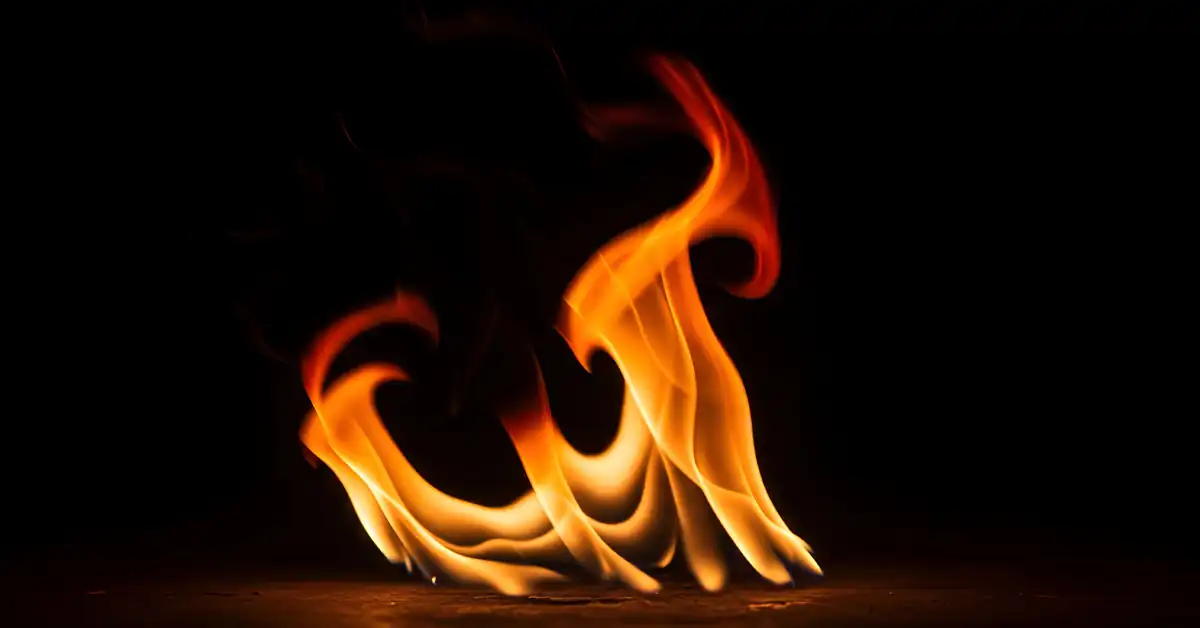Outer Darkness and the Lake of Fire

Outer Darkness in the Bible – Is It the Same as the Lake of Fire?
The Phrase That Divides Doctrines
Jesus mentioned it three times.
Not once in Revelation.
Never defined outright.
Yet the phrase “outer darkness” has become a linchpin for hell theology.
Traditional theologians cling to it as proof of eternal torment.
Annihilationists dismiss it as poetic language for nonexistence.
But neither camp bothers to ask the obvious question:
Why did Jesus pair outer darkness with weeping and gnashing of teeth, and what did He mean by it?
Let’s find out.
The Three Outer Darkness Passages
There are only three passages in the entire Bible that mention “outer darkness,” and they all come from Jesus’ mouth in the Gospel of Matthew.
| Reference | Context Summary | Who Is Cast Out | Event Type |
|---|---|---|---|
| Matthew 8:12 | Gentile centurion shows great faith. Jesus says many outsiders will feast with Abraham, while the “sons of the kingdom” will be cast out. | Jewish heirs who lack faith | Kingdom reversal (faith vs. heritage) |
| Matthew 22:13 | Parable of the wedding feast. A man without proper garments is bound and thrown out. | Unprepared wedding guest | Final judgment for being unworthy |
| Matthew 25:30 | Parable of the talents. A lazy servant who buried his talent is cast out. | Unfaithful servant | Judgment for inactivity or lack of fruit |
In all three cases, those cast out are not pagans, atheists, or rebellious devils.
They are insiders, those who were close, even entrusted, but who failed to respond rightly.
The result?
“There will be weeping and gnashing of teeth.”
So What Does That Phrase Actually Mean?
Not Fire. Not Flames. But Emotional Ruin.
“Weeping and gnashing of teeth” occurs seven times in the New Testament. Only three of those overlap with “outer darkness.” The other four describe:
- The end of the age where angels separate the wicked (Matthew 13)
- The wicked servant punished with the hypocrites (Matthew 24)
- Those locked out while seeing the righteous inside (Luke 13)
In all cases, the emotional pain is the same: regret, rage, grief.
They aren’t screaming because they’re in a torture chamber.
They’re weeping because they missed the feast.
They’re gnashing because they rejected the light.
Is Outer Darkness the Lake of Fire?
You bet it could be.
But that doesn’t mean what you’ve been told.
In Matthew 13, weeping and gnashing happens in a furnace of fire. In Matthew 8, 22, and 25, it happens in outer darkness.
Is that a contradiction? Not at all. It’s synonymous imagery.
Fire: torment of truth revealed.
Darkness: torment of truth rejected.
The Lake of Fire isn’t literal fire, just as outer darkness isn’t literal space.
They’re both images for what happens when a soul is exposed to God’s glory but has not been transformed by it.
How Do the Doctrinal Camps Interpret It?
| Viewpoint | Outer Darkness? | Weeping/Gnashing? | Lake of Fire? |
|---|---|---|---|
| Eternal Torment | Literal Hell, eternal exclusion from God | Ongoing conscious regret and agony | Same realm, conscious burning, never-ending |
| Annihilationism | Symbolic of being shut out and eventually erased | Emotional anguish before being destroyed | A fiery end with no resurrection |
| Universal Reconciliation | Real judgment, yes, but temporary and restorative | Deep sorrow leading to awakening or transformation | A refining fire, not to destroy, but to redeem |
Only one of these aligns with the heart of God revealed in Christ.
The Old Testament Already Spoke of This
Jesus didn’t invent “outer darkness” out of thin air.
The Hebrew Scriptures are drenched in the language of darkness as exile, shame, and spiritual blindness.
Here are just a few echoes:
- Exodus 10:21–23 – The plague of darkness over Egypt, a felt judgment
- Isaiah 8:22 – Distress and fearful gloom
- Deuteronomy 28:29 – Groping at noonday in blindness
- Lamentations 3:6 – “He has made me dwell in darkness like those long dead”
- Amos 5:18–20 – The Day of the Lord is not light, but darkness
Darkness in scripture is not about fire.
It’s about being cut off from revelation, hope, and joy.
Jesus simply extends the theme:
You were near the Kingdom, but you refused the light. So now, you’re outside, mourning in the dark.
So Is It in This Life or the Next?
Here’s where the false systems fall apart.
There’s no consensus because neither ECT nor Annihilationism has the honesty to admit what’s right in front of them:
- Outer darkness is not clearly located in time or geography.
- It’s not called “Gehenna,” “Sheol,” or even “Hades.”
- It could be experienced now, or after death, or in the ages to come.
That’s the point.
It’s not a map. It’s a mirror.
A state of regret, loss, and distance from joy.
And yes, if the Lake of Fire is the final phase of God’s judgment, it may be the culmination of that darkness.
But only for the eons.
The Aeonian Fire: Not Eternal, But Purifying
The original Greek word aiōnios never meant “eternal.”
It means age-enduring, lasting for a span of time, with a defined beginning and end.
So when we read:
“Depart from me into the aiōnios fire…”
…we’re not reading “forever.”
We’re reading a period of intense divine exposure.
A fire that refines. A judgment that wakes.
A darkness that reveals how much we need the light.
Summary: The Outer Darkness Is Real, But It’s Not the End
Yes, it’s weeping.
Yes, it’s gnashing.
Yes, it might overlap with the Lake of Fire.
But it is not eternal.
And it is not final.
The God who casts out is the same God who leaves the 99 to find the one.
Even in the outer darkness, His mercy endures.
Even in the fire, His purpose remains: to save, not destroy.
As Psalm 139:8 says:
“If I make my bed in Sheol, behold, You are there.”
If God is there, then hope is there.
Even in the darkness outside.
- 09/03/2025
- WRITE A COMMENT
Recent Posts
- The Eternal False Translation: How Aionios Was Corrupted Into Eternal
- The Rich Man and Lazarus
- Does Grace Last Forever?
- His Love Never Fails
- Love and Forgive Your Enemies
- His Mercy Endures Forever
- Scriptures That Teach Universal Reconciliation
- The Lesson of James, Peter and John
- Progressive Salvation is Biblical!
- The Gates Never Shut!


